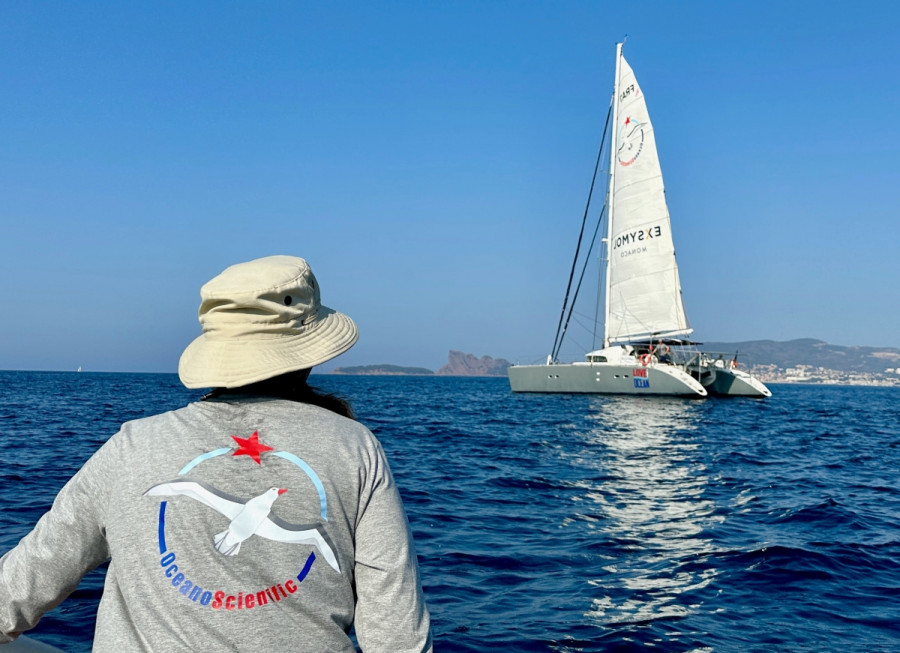The OceanoScientific team has wrapped up a critical phase of its Mediterranean expedition, having successfully collected important environmental DNA from 15 sites along the southern French coast. The data gleaned from this stage of the mission will help advance the study of marine biodiversity in the region.
The OceanoScientific eDNA Mediterranean Expedition 2024 has concluded a significant phase of its environmental monitoring mission in the south of France.
During the months of July and August, the team travelled extensively across 15 designated Marine Biodiversity Sentinel Sites (MBSS) in the Alpes-Maritimes, Var and Bouches-du-Rhône departments to collect a number of environmental DNA (eDNA) samples.
This expedition, led by Professor David Mouillot from the Marbec Joint Research Unit at the University of Montpellier, aims to build upon a comprehensive survey initiated in 2023. That effort resulted in the first scientific inventory of marine biodiversity, mainly fish and crustacean species, along the French Mediterranean coast. The data collected this year will enhance last year’s survey findings.
See more: Prince Albert II attends launch of OceanoScientific’s second Mediterranean expedition
Justine Camus of OceanoScientific coordinated the recent expedition, which is part of the broader BioDivMed Mission led by Pierre Boissery of the Rhône Mediterranean Corsica Water Agency. Operating aboard the Lagoon 570 catamaran ‘Love the Ocean’, the team conducted its work autonomously, only docking for the expedition’s start and end.

The field team used the DONIA application, developed by Andromède Océanologie, to locate suitable anchoring spots to avoid damaging Posidonia seagrass beds, a critical habitat for marine life in the region. Sampling was typically conducted at daybreak, taking advantage of calmer seas for more accurate and uncontaminated eDNA collection.
Collecting marine eDNA is challenging, requiring strict adherence to protocols established by Spygen, a partner in the expedition. The main challenge is avoiding contamination of the small suction strainer used to filter seawater.
The team, usually consisting of three members, used a pump installed on a Vanguard-Suzuki RIB to ensure that eDNA samples were consistently collected at the same depth. Each sampling session involved filtering 30 litres of seawater, which was then treated with a proprietary preservative developed by Spygen to maintain the integrity of the DNA strands until analysis at the University of Montpellier.
A final campaign to collect additional eDNA samples is scheduled for September 2024.
Read related:
Prince Albert II attends launch of OceanoScientific’s second Mediterranean expedition
Monaco Life is produced by real multi-media journalists writing original content. See more in our free newsletter, follow our Podcasts on Spotify, and check us out on Threads, Facebook, Instagram, LinkedIn and Tik Tok.
Photo credit: OceanoScientific